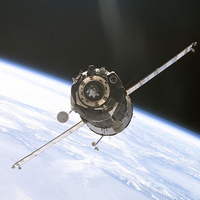Debates over space policy typically concern three themes: national security, civil space and commercial space. National security discussions have historically focused on threats to space systems and the proper steps to either preclude, or respond to, those threats. Over the past several years, however, those discussions have grown more sophisticated, moving on to the broader issue of U.S. dependence on and use of space to enhance its military, economic and political power. In civil space, policy discussions address questions of resources and priorities: how much to spend and what to spend it on. Roughly every decade, civil space programs experience a soul-searching examination of their raison d'être, most notably in the United States. In commercial space, American debates typically start with the premise that commercial space activity is desirable and then proceed to discussions over what the government can, or should, do to enhance it.
While a lot of creative thinking and policy analysis is involved in these existing debates, less attention has been paid to more basic functions, such as managing activity in the domain of space. Several factors contribute to this state of affairs. The demands on basic management functions have been relatively modest: Space is vast, and the number of spacefaring states was small. That is changing. The world moved from two spacefaring states in the 1960s to a handful by the 1970s and 1980s. That became a dozen or more of varying capability in the 1990s, and is in the dozens today. Nine countries -- including the 19-member European Space Agency -- have successfully launched payloads to orbit. More than 50 countries design, develop, deploy, own or operate satellites or portions thereof. An even greater number have access to space services and products, such as remote sensing data, communications links and launch opportunities. This is usually through contracts and cooperative ventures with established space powers and their commercial enterprises, or through membership in international consortia that pool resources to develop and offer such capabilities on an open market. In short, space has gotten more populated. It will only grow more so as more states discover the benefits of space applications and private entities field their own space systems.
Historically, existing space-management capabilities have been reasonably able to meet the needs for deconflicting routine space operations such as launches, satellite operations, spacecraft recovery and the like. When the occasional one-off situation presented problems, those arrangements were sufficient for working through them and adjusting accordingly. Some critics have raised concerns that those management capabilities are no longer up to the task of meeting growing demands. Against that background, a quick review of current mechanisms for avoiding and resolving such problems may be useful.

